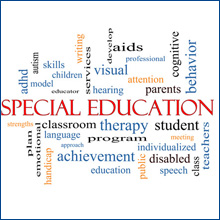Special Education Lawyer In Danbury, Connecticut Danbury, Connecticut, affectionately known as the “Hat City” for its historic role as a hub of hat-making, offers a unique blend of cultural diversity, natural beauty, and suburban charm. Nestled in Fairfield County, it combines the serenity of small-town living with easy access to New York City, making it a favorite among families and professionals alike. Danbury’s vibrant community is enriched by its diverse Continue Reading
Connecticut State Board of Education Orders Lyme-Old Lyme District to Reimburse Family for FAPE Violations
The Connecticut State Board of Education recently ruled that the Lyme-Old Lyme School District failed to provide a Free Appropriate Public Education (FAPE) to a fourth-grade student with dyslexia. As a result, the district must reimburse the family for tuition at The Southport School, a specialized program for students with learning and attention disabilities, as well as transportation costs. The hearing officer determined the district’s program was “woefully inadequate” after Continue Reading
What is special education law, and how does it affect my child?
In the United States, special education law is primarily governed by the Individuals with Disabilities Education Act (IDEA). This video explains how IDEA is structured to support children with disabilities, focusing on two critical components: special education services and related services. Discover how these services are organized into an Individualized Education Plan (IEP), which addresses each child’s unique learning challenges, providing the extra instruction and assistance they need to succeed in school. Learn how the IDEA Continue Reading
Special Education Lawyer in Brookfield, Connecticut
Special Education Lawyer In Brookfield, Connecticut Nestled in Fairfield County, Brookfield, CT, combines a peaceful, small-town vibe with the charm of New England’s rolling hills and classic colonial character. Brookfield captures the heart with its balance of rural beauty and modern touches, creating a beloved home for those lucky enough to call it theirs. Special Education By the Numbers According to the Connecticut EdSight data portal, Brookfield has reported a per pupil Continue Reading
Connecticut State Department of Education Hosts Special Education Summit
The Connecticut State Department of Education is holding a Special Education Summit November 13th. This summit is open to the public to bring together educators, families, and students, as well as local leaders and experts. The special education summit will share perspectives on the status of special education in Connecticut and will highlight future statewide initiatives. To register for the event, click here. Continue Reading







